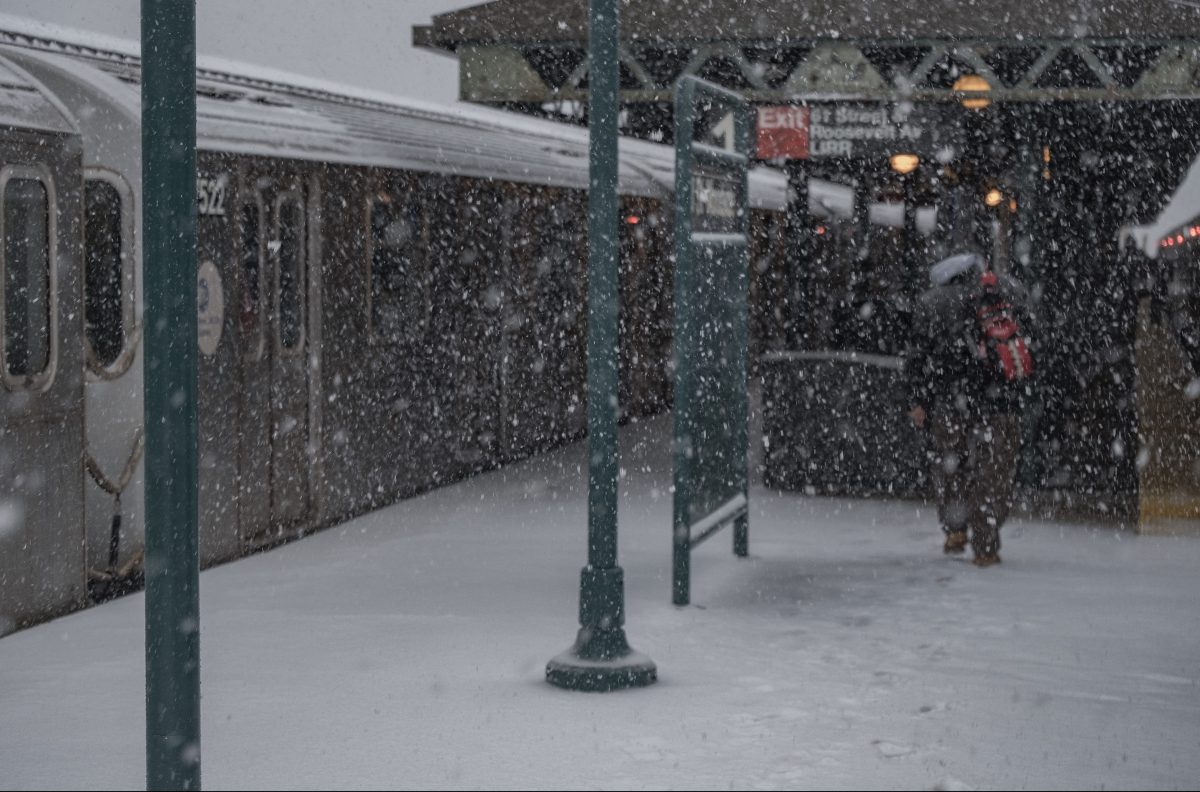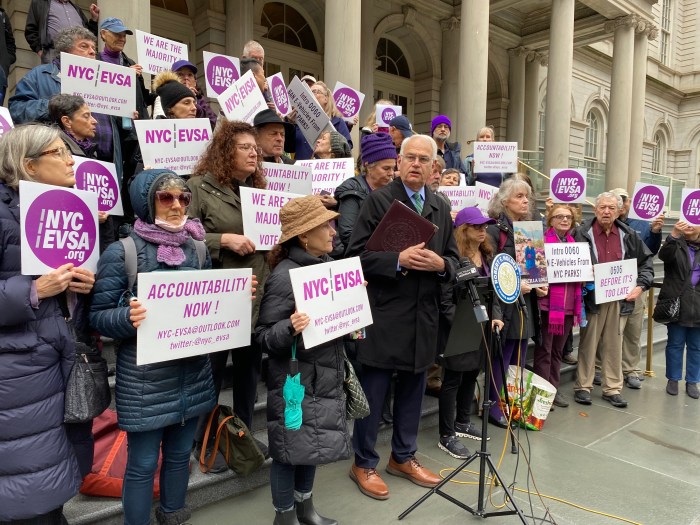The Bowery Residents’ Committee (BRC) has a $36 million contract to help reduce the number of homeless people in subway stations across the city — but State Comptroller Thomas DiNapoli said they’re not living up to their end of the bargain.
DiNapoli released a study Thursday criticizing the Manhattan-based organization for failing to uphold its pact with the MTA to provide homeless outreach. The same study also faulted the MTA and the city’s Department of Homeless Services (DHS) for failing to properly monitor the contract.
“Homeless outreach in the subway has been so shoddy and with so little oversight from DHS and MTA, that it should be no surprise the homeless population in the subways has grown,” DiNapoli said. “DHS seems to have hired the Bowery Residents’ Committee to deal with the subway homeless population, then walked away. BRC’s failure to even come close to fulfilling its contract has left vulnerable homeless men and women badly served and straphangers fending for themselves in increasingly difficult circumstances.”
According to the comptroller, the MTA entered into a memorandum of understanding (MOU) with DHS to conduct outreach in its 472 stations. DHS then outsourced these tasks out to BRC via contract as a nonprofit provider of housing and services.
Progress, the comptroller contests, was barely palpable; annual counts of the subway homeless population found that it dropped from 1,841 in 2013 to 1,812 in 2017 — a 1.5% decrease — before spiking up to 2,178 in 2019. That’s a 20.2% jump from the recorded population in 2017.
After reviewing DHS data as outlined in the agency’s CARES database, the audit found that 40% of clients with whom the BRC had made contact had either not been placed in shelters — or had been placed in shelters at different dates than recorded.
DiNapoli concluded that the information in the CARES database was not reliable.
The MTA, however, felt DiNapoli’s audit needed to catch up on the times and said that since its own task force on homelessness was launched in August 2019, there have been real results.
“This out-of-date audit predates major efforts the MTA has undertaken to address the City’s homelessness crisis, including the launch of the MTA Homelessness Task Force, engaging the MTA Inspector General to strengthen oversight, and increasing outreach team patrols to improve rule enforcement and the acceptance of social services. Since launching the task force we’ve had more than 30,000 contacts with homeless New Yorkers in the subway, and have convinced more than 2,000 to accept services,” an MTA spokesman said. “We continue to do everything we can to address this societal problem and what amounts to multiple failures – of the shelter system, mental health system, and broader social services network – that have left many of the most vulnerable New Yorkers to believe that their only and last resort is to live in the subway.”
BRC’s president, Muzzy Rosenblatt, didn’t necessarily agree with DiNapoli’s findings.
“While the [office of the state comptroller] reports’ conclusions fail to appreciate the effort and achievements of BRC’s outreach programs, we recognize there are opportunities to improve and have already begun to work with our government partners to implement constructive changes,” Rosenblatt said.
The DHS accepted that better contract oversight is necessary going forward — but that was where agreement on the comptroller’s study ended.
“BRC is an essential partner in our mission to address the citywide challenge of homelessness that built up over decades, including by providing outreach, services, and a helping hand to those living unsheltered,” a DHS statement read. “We take the comptroller’s report seriously, and while we disagree on some of the details, we agree with the spirit of the recommendations. We intend to hold all providers accountable to high standards and remain committed to improving oversight [of BRC] through an enhanced quality assurance program that includes strengthened performance metrics.”
DiNapoli’s office recommended that the MTA and DHS work on targets for census number reduction.
To DHS alone, recommendations went as follows:
- Ensure outreach workers meet established performance measures;
- Monitor BRC outreach workers to ensure they are providing a sufficient level of outreach services in the New York City subway system;
- Enhance internal controls to ensure that BRC’s reported data in CARES is accurate and complete, and use the available data to make informed managerial decisions.
amNewYork Metro reached out to the MTA for comment, and is awaiting a response.
You can read the full report from DiNapoli’s office here.

































